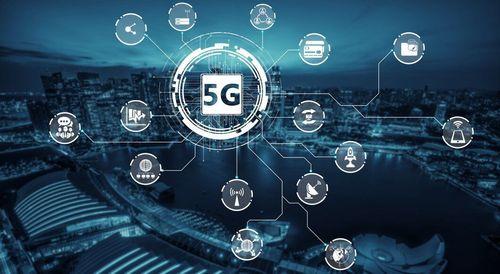How 5G Revolutionizes Online Learning: Key benefits and Transformations
Online learning has experienced remarkable growth over the past decade, but with the advent of 5G technology, the digital education landscape is poised for unprecedented transformation. Far beyond faster internet speeds, the arrival of 5G networks empowers educators and students with ultra-reliable connectivity, enhanced interactivity, and access to refined learning tools. In this article, we’ll explore how 5G revolutionizes online learning, highlight its key benefits, showcase real-world transformations, and offer practical tips for maximizing the potential of 5G-enabled education.
The 5G advantage in Online learning
5G – or fifth-generation wireless technology – is more than just an upgrade. It’s a catalyst for change, notably in education. By offering exceptionally high speeds, low latency, and vast connectivity, 5G facilitates seamless learning experiences previously impossible on older networks. Let’s break down the key features of 5G that impact online education:
- Massive Bandwidth: Supports data-intensive activities like HD video streaming and real-time collaboration.
- Ultra-Low Latency: Enables instantaneous feedback and interaction, critical for remote classroom engagement.
- Reliable Connectivity: Reduces interruptions and disconnections,even in crowded or remote locations.
- Enhanced Mobility: Learners can access resources anytime, anywhere, from any 5G-enabled device.
These features mark a significant evolution from the capabilities of 4G and Wi-Fi, setting the stage for revolutionary transformations in digital education.
How 5G Revolutionizes Online Learning: Key Benefits
1. Empowered Real-Time Collaboration
With 5G’s ultra-low latency,teachers and students enjoy smooth video calls,live feedback,and collaborative projects. This means:
- Group assignments can be seamlessly completed across different locations.
- Instant document and screen sharing enhance interactive learning.
- Low network delay ensures active participation and engagement.
2. Immersive Learning Tools
5G’s high speeds and stable connections encourage the adoption of AR (Augmented reality) and VR (Virtual Reality) in education, leading to:
- Virtual field trips: Explore museums, historical sites, or laboratories via VR from anywhere in the world.
- Interactive science experiments: Engage with dynamic AR models to visualize complex concepts.
- Hands-on practice: Simulated environments enable safe, repeatable training for subjects like medicine or engineering.
3. Greater Access and Inclusivity
High-speed 5G networks help close the digital divide:
- Students in remote or underserved areas access quality content with minimal buffering.
- enhanced connectivity supports adaptive technologies for learners with disabilities.
- Flexible learning empowers working adults and parents to study on-the-go.
4. Seamless Content Delivery
5G enables instant downloading and streaming of educational materials.Whether it’s lecture videos or interactive textbooks, learners experience:
- No delays in accessing rich multimedia resources.
- Streamlined integration with cloud-based platforms for assignments and grading.
- consistent user experiences regardless of class or device location.
5. Enhanced Data Security and Personalization
Online learning platforms can leverage 5G to deploy advanced security protocols and AI-driven personalization:
- Encrypted streams protect sensitive student and teacher data.
- Advanced analytics analyze engagement and recommend tailored modules.
- Smart monitoring detects and prevents exam cheating and plagiarism.
Transformations in Online Education: Real-World Case Studies
Educational institutions and online platforms are already leveraging 5G to enhance digital learning. Here are two inspiring examples:
Case Study 1: Smart Classrooms Powered by 5G
Seoul Metropolitan Office of Education partnered with local telecom providers to pilot 5G-enabled smart classrooms.Students participated in:
- Interactive, real-time science experiments via VR.
- Instant feedback from AI-powered teaching assistants.
- Cross-class collaborations between schools in different districts.
Result: Significantly improved student engagement and performance, plus reduced teacher workload through automation.
Case Study 2: Remote Medical Training Using 5G
Medical schools in the UK use 5G-enabled AR and VR simulations:
- Students remotely practice surgical procedures in real-time with expert supervision.
- global collaboration between trainees and specialists via high-definition teleconferencing.
- Immediate access to vast libraries of video and 3D models with zero lag.
Result: Increased skill acquisition speed and greater participation from diverse, international cohorts.
Practical tips to Maximize 5G in Online Learning
Adopting 5G in online education offers immense potential,but maximizing its advantages requires thoughtful preparation:
- Choose 5G-Compatible Devices: Make sure laptops,tablets,and smartphones used for study support 5G connectivity.
- Upgrade Learning Platforms: Opt for virtual classrooms, LMSs, and content delivery systems optimized for higher bandwidth and interactive features.
- Train Instructors: Familiarize teachers with new AR/VR tools, real-time collaboration apps, and security protocols enabled by 5G.
- Promote Digital Literacy: Ensure students are agreeable with digital resources and online safety best practices.
- Monitor Data Usage: Leverage dashboards to track and manage connectivity costs, especially in large or multi-campus settings.
First-hand Experience: Voices from the 5G Education Frontier
“As our university upgraded to 5G and introduced VR labs, my biology classes feel immersive and interactive. It’s like being physically present during dissections and field trips—without leaving campus.”
maria L., undergraduate Student
“With 5G’s stability, I’m able to connect with students in remote villages and deliver live lessons with zero interruption. It’s truly bridging the gap in access to quality education.”
Dr. Paul O., Online Educator
conclusion: Shaping the Future of Digital Education with 5G
The impact of 5G on online learning goes far beyond technological upgrading. It redefines how knowledge is accessed, shared, and experienced—paving the way for more inclusive, innovative, and dynamic educational opportunities. As 5G networks continue to expand, educators, learners, and institutions must prepare to embrace new possibilities: immersive virtual classrooms, enhanced collaboration, and equitable access to world-class resources.
Whether you’re an educator, student, or administrator, the time to invest in 5G-enabled learning is now. Harness its potential,upgrade your infrastructure,and step confidently into the future of education—where learning knows no boundaries.

